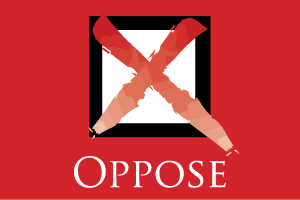 Ads appearing on social media focus on cost increases Californians will face if voters approve Proposition 32, the minimum wage increase on the November ballot.
Ads appearing on social media focus on cost increases Californians will face if voters approve Proposition 32, the minimum wage increase on the November ballot.
The California Chamber of Commerce opposes Prop. 32 because it will lead to higher costs, fewer jobs and a reduction of available work hours for employees in the state. Passage of Prop. 32 also will contribute to inflation, add to the high cost of living in California, and hurt state revenues. It will put even more pressure on the state budget.
As highlighted in the ad, Prop. 32 hurts those its supporters claim to help. The cost increases due to Prop. 32 will force businesses to raise prices, which hurts working families at a time when costs are top of mind.
Prop. 32 will hurt small businesses, which are more vulnerable to the impacts of higher costs.
In addition, Prop. 32 will increase costs for state and local governments, many of which are facing major budget deficits.
Economic Consequences
The economic consequences of Prop. 32 were explained in a CalChamber podcast featuring CalChamber President and CEO Jennifer Barrera, CalChamber Associate General Counsel Matthew Roberts and California Restaurant Association President and CEO Jot Condie.
Condie explains that minimum wage hikes typically don’t get put before voters—it’s something that the Industrial Welfare Commission, local governments or Legislature decide on through a deliberative process that considers the interests of workers but also the impact on employers.
Barrera points out that inflation is affecting business costs too and small businesses, in particular, operate on very slim margins. As suppliers and vendors raise their prices, businesses are forced to make difficult decisions to manage their budgets. They might reduce employee hours or workforce size, which can lead to unintended consequences for the state’s economy.
Proposition 32 Provisions
Proposition 32 increases the minimum wage for employers with more than 25 employees from the current $16 an hour to a $17 hourly wage for 2024 and $18 hourly wage in 2025. For employers with 25 or fewer employees, the minimum wage would increase to $17 an hour in 2025 and $18 an hour in 2026. Minimum wages would thereafter be increased annually by an inflation adjustment—the equivalent of the consumer price index (CPI), but no greater than 3.5% a year.

